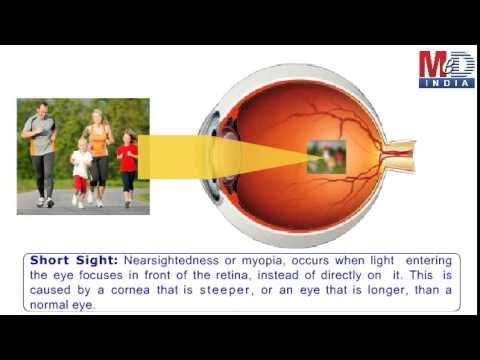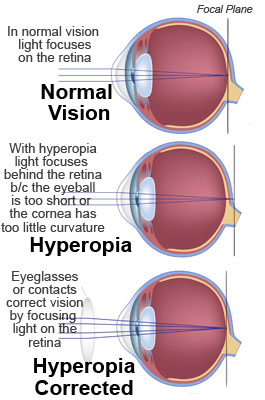
In general, infants with farsightedness correct the condition by three to two years of age. Parents should test their child’s eyes at every well-baby checkup and at the start of school. A doctor can prescribe eyeglasses, contact lenses, or corrective surgery to improve the child’s vision. In most cases, these treatments are successful, and a person with farsightedness can enjoy good vision for years to come.
In order to cure farsightedness, the first step is to consult an eye care professional and get a thorough eye exam. Your eye health professional will dilate your eye and check it with a magnifying lens. If your condition is severe, your health provider can prescribe corrective lenses or refractive surgery. The most common treatment for farsightedness is wearing eyeglasses. These lenses are called convex and increase refraction. If these methods do not help, your eye care professional may prescribe an implantable contact lens that can correct the problem.
Another method of treating farsightedness is wearing glasses. These glasses or contact lenses help a person see clearly. But if the condition persists, a healthcare professional may perform eye surgery. This surgery reshapes the cornea to focus light correctly. In severe cases, treatment is not effective enough and the patient has to repeat the procedure. If your condition returns after a few years, you can try wearing glasses or contact lenses to correct it.
Treatment for farsightedness depends on the severity of the condition and the type of treatment you receive. It is important to consult with an ophthalmologist to determine whether you need further treatment. Your doctor may also test your vision regularly and write a prescription for glasses. If you are mildly farsighted, you may want to wear sunglasses to help prevent the condition from recurring. However, it may return after a few years.

In addition to wearing glasses, people suffering from farsightedness should also make sure to wear sunglasses. This will protect your eyes from harmful UV rays and prevent further vision problems. Additionally, they should take care of their eye health by wearing eye protection, such as dark greens and fish high in omega-3 fatty acids. If you feel discomfort with your vision, you can visit your doctor to find out if you have any other vision problems.
The most common treatment for farsightedness is wearing glasses. The main purpose of wearing glasses is to increase refraction, which is the eye’s ability to focus on close objects. Thus, people suffering from farsightedness will be able to avoid headaches and eye strain. Additionally, this disease can be prevented by wearing sunglasses. These simple steps may not be enough and you will have to continue to see your doctor and visit the health website regularly https://matchasuri.com.mx/.
If the symptoms of farsightedness persist after age forty, you should consult your healthcare provider. Your healthcare provider can check your eyes for signs and symptoms of the condition, or treat it in advance. In addition, you should use sunglasses that block more than 99% of the UV radiation that causes eye problems. You should also look at something that is far away every 20 minutes. You may find that the condition has returned after a few years, but this is still the most effective way to cure it.
As far as eyeglasses are concerned, there are a number of ways to cure farsightedness. Often, an eye care professional will use eye drops to dilate the eye and use a magnifying lens to check the back of the eye. Then, he or she will decide whether or not you need refractive surgery or corrective lenses. Depending on your situation, your healthcare provider may suggest the best course of action.
As far as eyewear goes, a basic eye examination will determine the severity of your condition. The doctor will perform a refraction assessment to check your eyes’ health and your vision. A thorough examination will help your doctor diagnose your condition, and prescribe corrective lenses. For severe cases of farsightedness, a refractive surgery may be needed. The surgeon will fix your eyes and then correct your vision with a laser.
